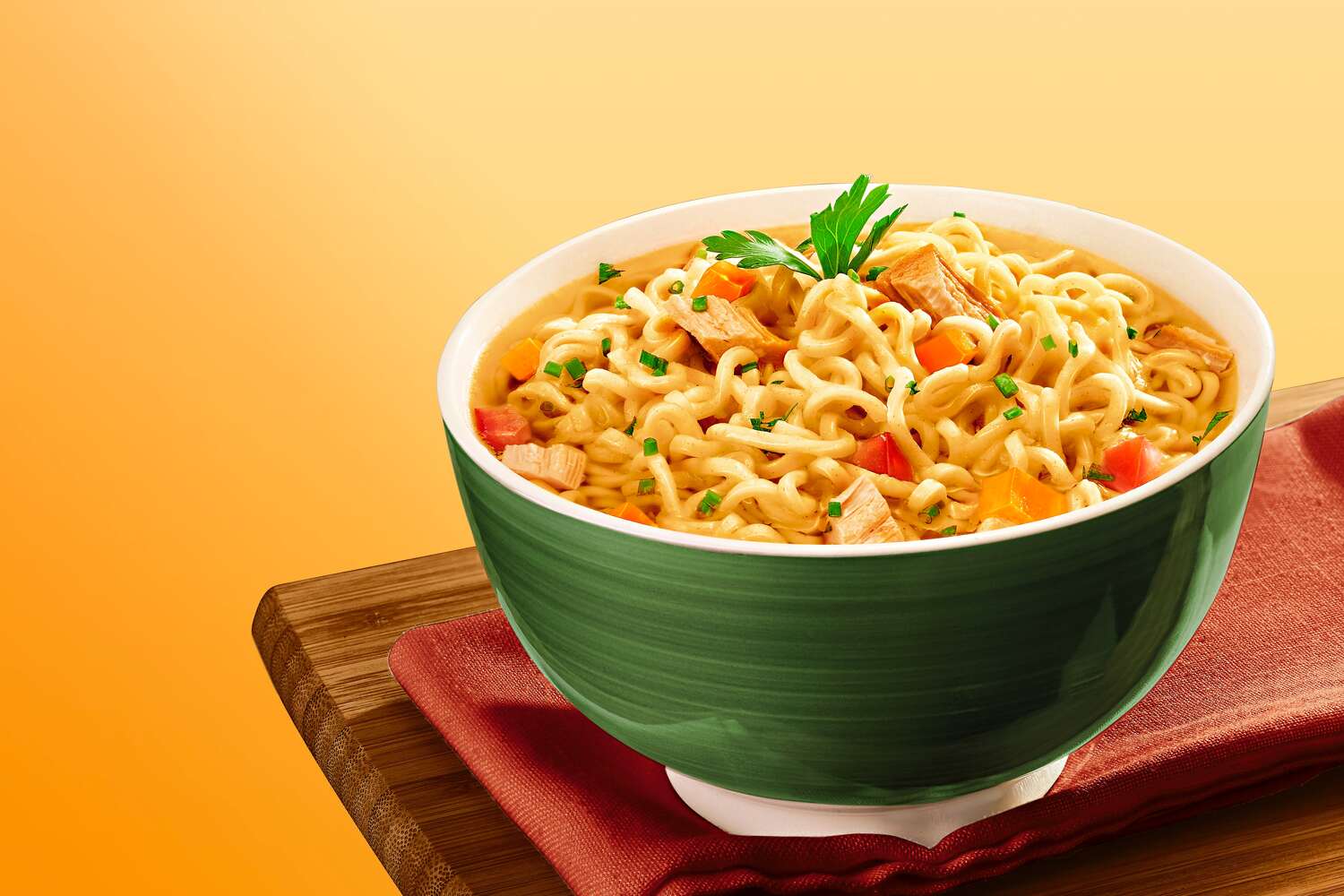
In recent years, the variety and consumption of commercial infant and toddler food products is increasing. Wondering how these food brands use eye-level marketing to entice both toddlers and parents? Even though they look appealing, these instant noodles lack essential nutrients for toddlers’ growth and development. Modern parents are increasingly turning to instant noodles for toddlers as a quick meal solution.
Certainly the taste, texture, and nutritional content of every noodle is unique. These instant noodles can be a delightful treat for your toddler’s meals. Read on to learn more about including noodles for toddlers and come up with informed dietary choices.
In This Article
- Video Of Are Noodles Safe For Toddlers?
- Are Noodles Safe For Toddlers?
- Are Noodles Nutritious?
- How Much Consumption of Noodles is Safe For Toddlers?
- Are There Any Health Benefits of Noodles For Toddlers?
- What Are The Side Effects of Noodles For Toddlers
- What Are Some Healthy Alternatives to Noodles For Kids?
- FAQ’s
Video Of Are Noodles Safe For Toddlers?
Are Noodles Safe For Toddlers?
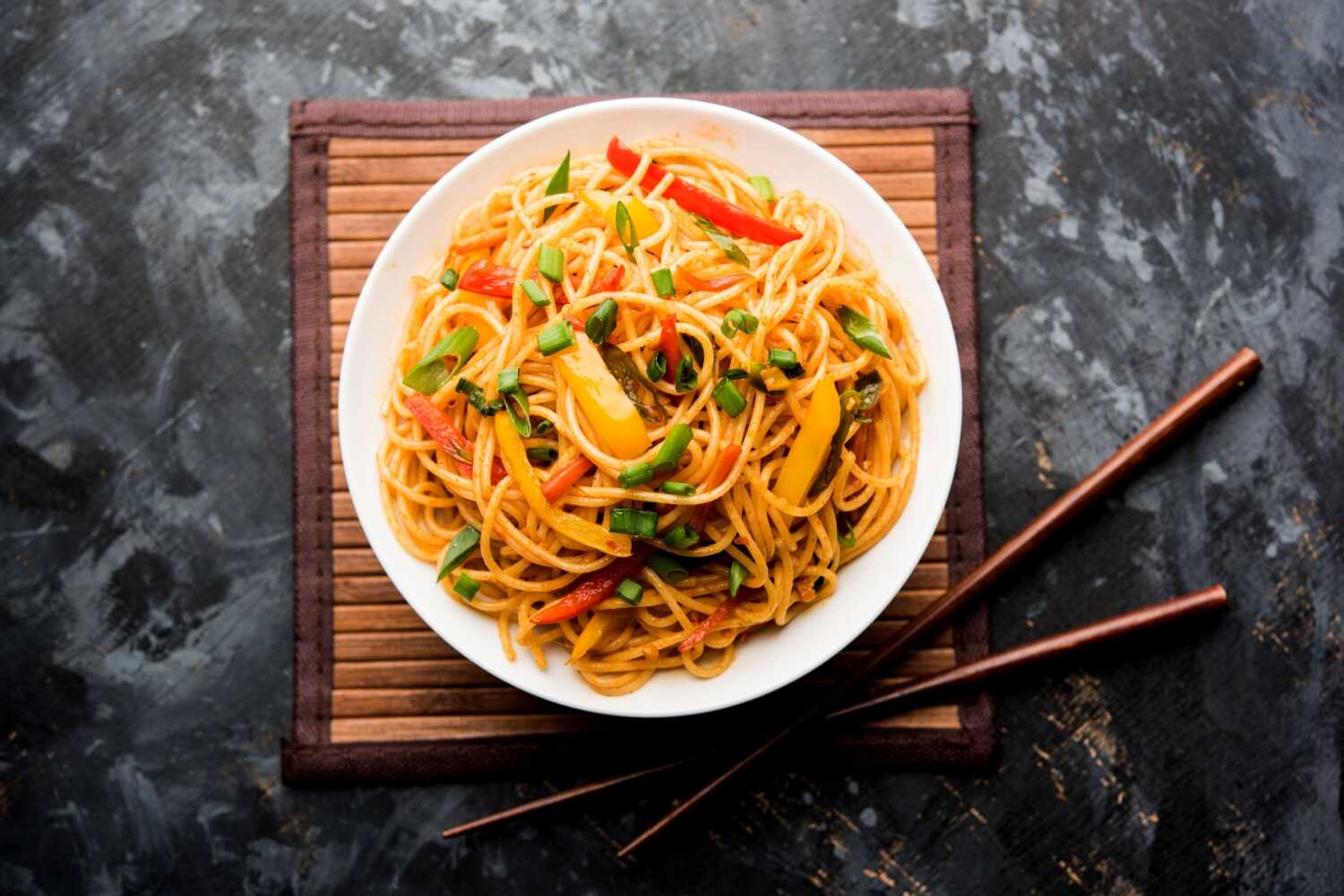
Yes, noodles are safe to incorporate into a toddler’s diet. The store-bought noodles are usually pre-cooked, and are made with refined flour, salt, corn syrup, palm oil, and monosodium glutamate (flavor-taste enhancer), etc. (1a) It is crucial for parents to limit portion sizes and select nutritional ingredients for their toddler’s noodle bowl. Here are a few tips when introducing noodles to toddlers-
- Choose plain noodles with minimal additives
- Various colorful veggies and a protein source can be added during preparation. It will certainly boost its nutrient content
- Avoid high-calorie sauces (sweet chili sauce, soy sauce, miso paste, fish sauce, etc.) and instead choose lighter options such as fresh herbs and spices
- A soupy sauce base for noodles can be prepared with- roasted cashew nuts blended with milk, pureed pumpkin/carrots, blanched and pureed spinach or cauliflower
- Make sure to cook noodles till soft to avoid any choking problems
- Serve freshly made noodles at room temperature
- Noodles represent a soupy dish. Toddlers should eat at a dining table. This will help you safeguard your little one from getting burnt
Are Noodles Nutritious?
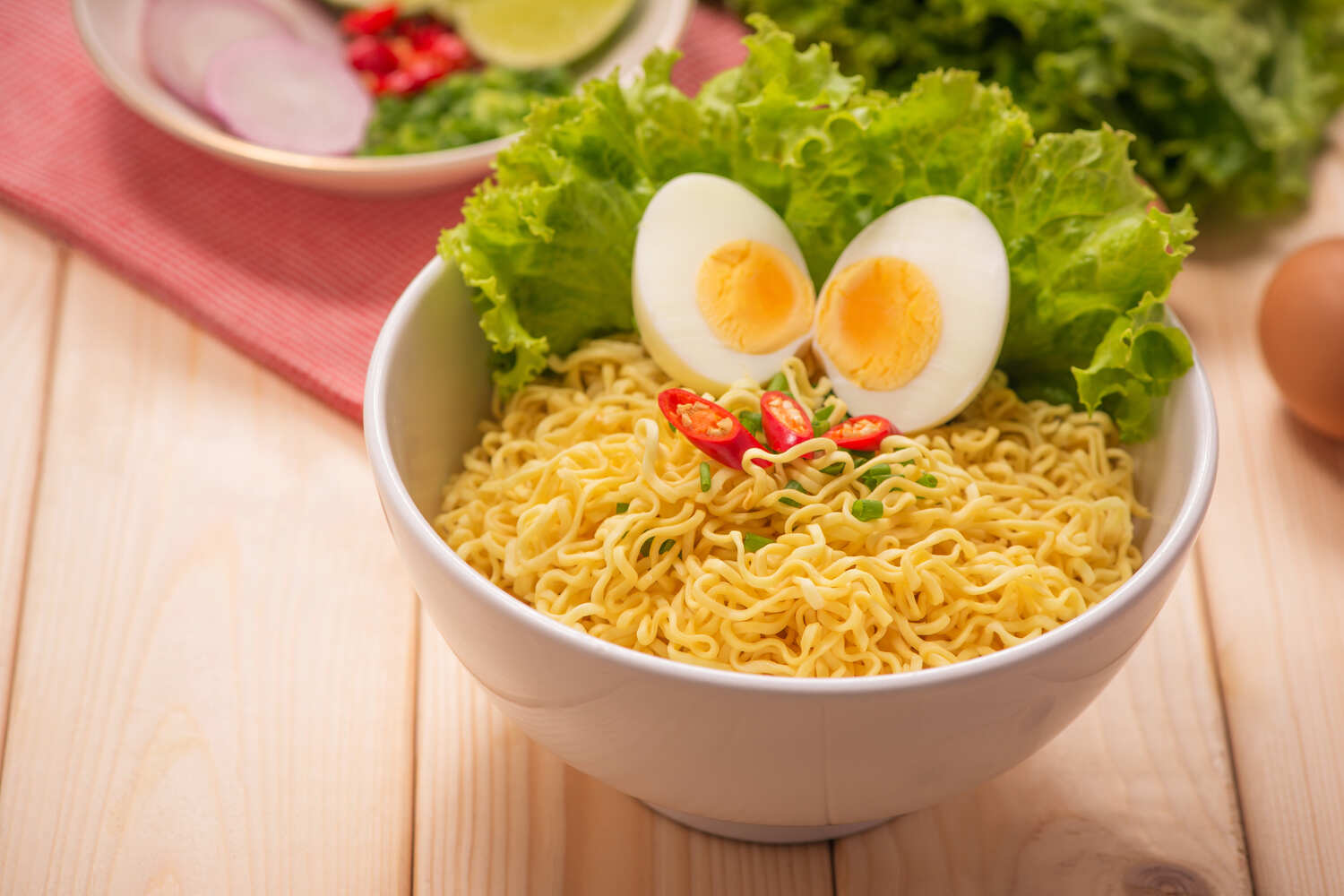
Most instant noodles are made from refined wheat and/or rice flour. It makes noodles high in carb-calories and low in nutrients. With a few simple tweaks, you may turn an instant noodle bowl into a nutrient-rich delight-
- Adding steamed vegetables, like peas, carrots, broccoli, bell peppers, cabbage, or leafy greens
- Putting on a protein source, such as egg, chicken, fish, cheese, tofu, or soy nuggets
- Sprinkling sesame seeds over noodles adds texture and flavor variety
- Drizzle butter, olive or sesame oil, vinaigrette, and lime juice
- Add your own herbs and spices to the noodle bowl. The inside flavor sachets can be ditched
Consider feeding noodles to toddlers on occasion only. Try to prepare noodles with other nutrient-rich foods from a healthy diet.
How Much Consumption of Noodles is Safe For Toddlers?
Daily consumption of noodles is not suitable for toddlers. The suggested frequency is only once or twice weekly. Instant noodles are high in carbohydrates and don’t give any other nutrients. Therefore, it may be detrimental to toddlers.
Are There Any Health Benefits of Noodles For Toddlers?
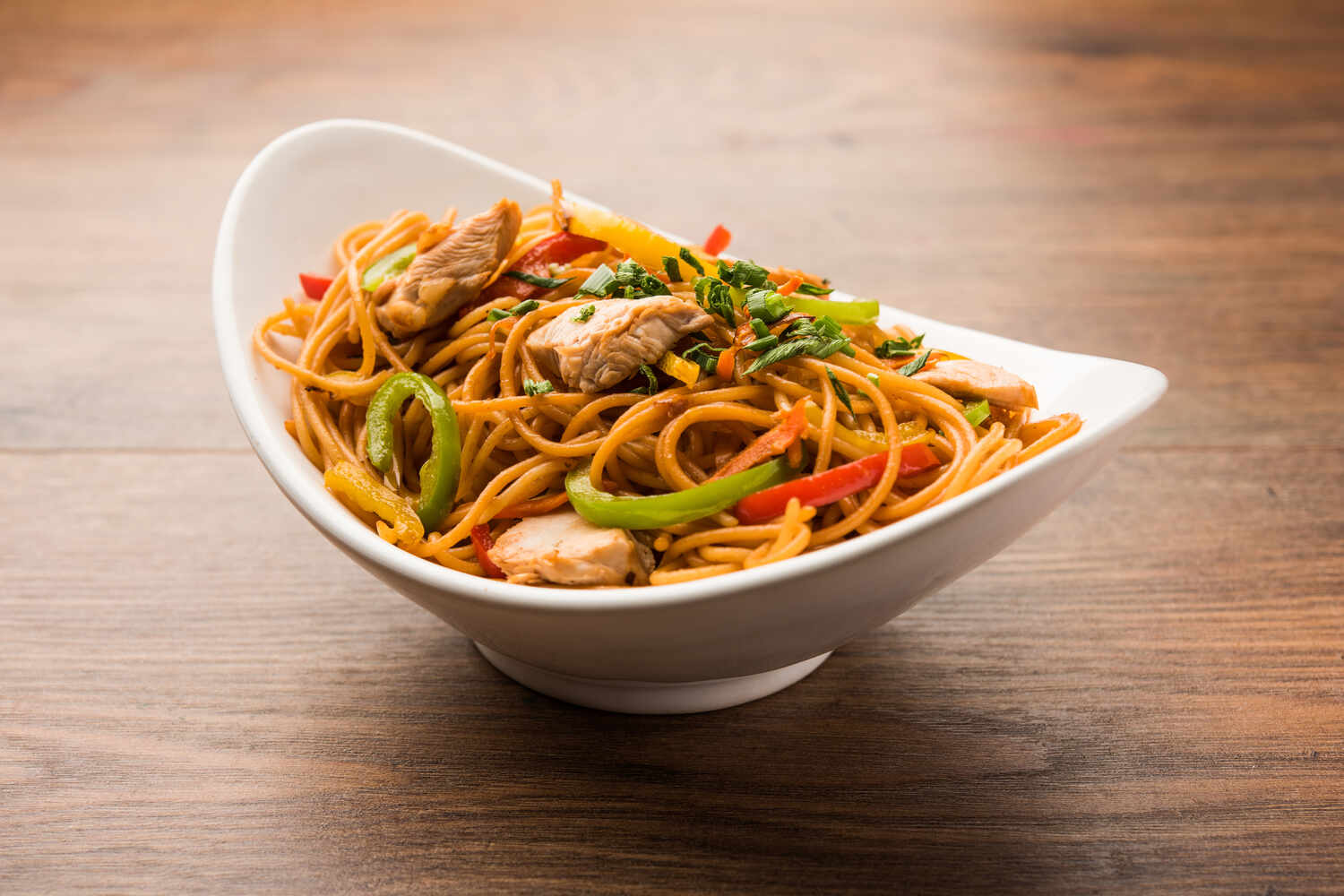
When noodles are made with nutritional ingredients, they provide essential nutrients for active toddlers-
- The soft and silky texture of the noodles is comfortable on their stomachs and aids digestion
- Carbohydrates from wheat/rice in noodles provide a quick and sustained energy boost
- For busy parents, noodles are a quick and convenient meal option that saves them time
- It can be cooked into a variety of flavors and textures, increasing their mealtime satisfaction
What Are The Side Effects of Noodles For Toddlers?
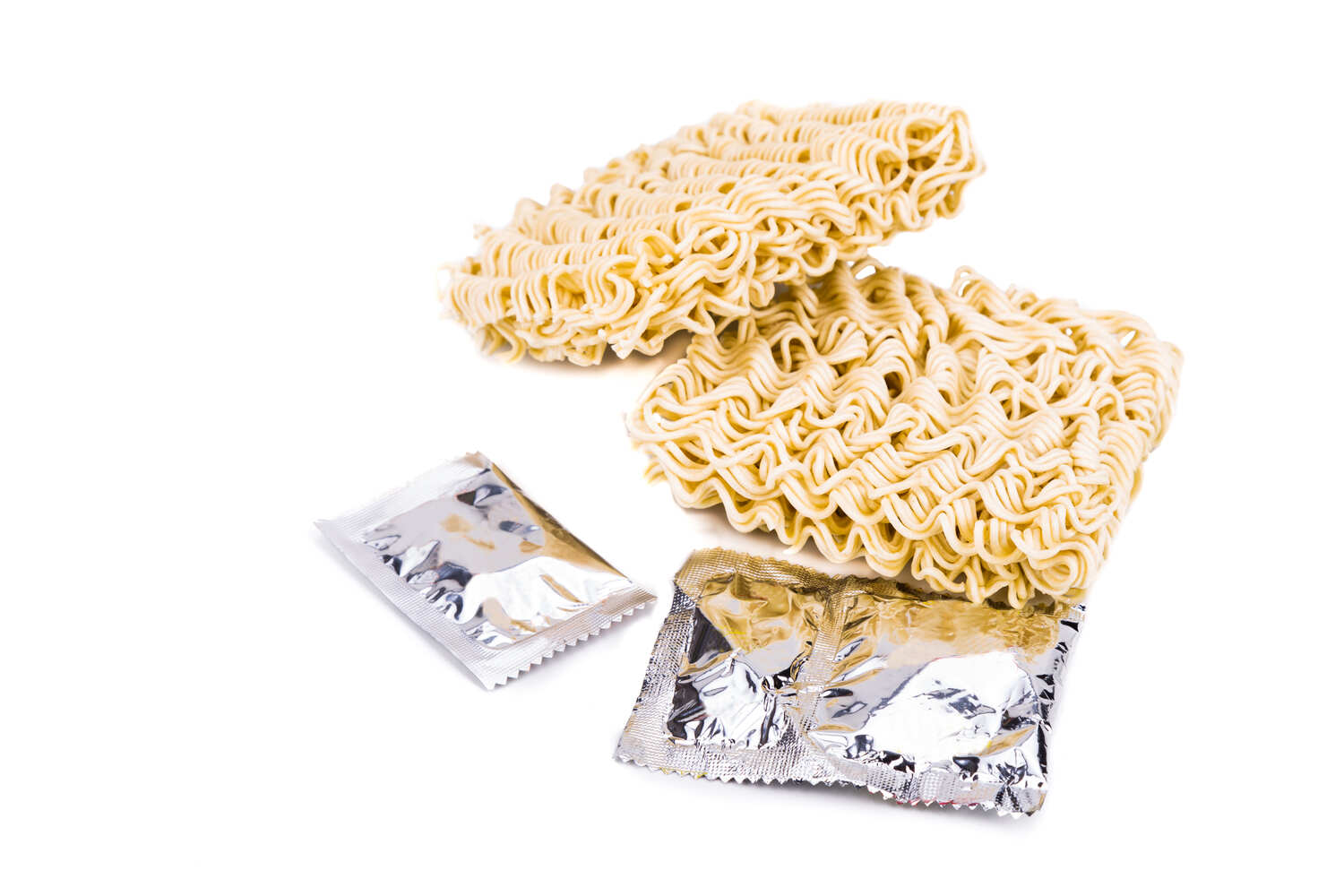
Vitamin and mineral deficiencies, particularly iron, vitamin A, and zinc, are common among growing toddlers. As a result, eating store-bought noodles frequently may be harmful to their health. The instant noodles are high in preservatives and chemicals but low in nutrition (1b).
Toddler-friendly quick foods, noodles, purees, baby cereals, and other products may contain trace amounts of naturally occurring sodium from the components, but they may also contain additional salt, fat, and sugar (2). Feeding your baby exclusively store-bought noodles will cause them to consume unusually high amounts of salt. Many types of instant noodles contain gluten, a type of protein that can cause adverse reactions in toddlers with gluten sensitivity.
What Are Some Healthy Alternatives to Noodles For Kids?
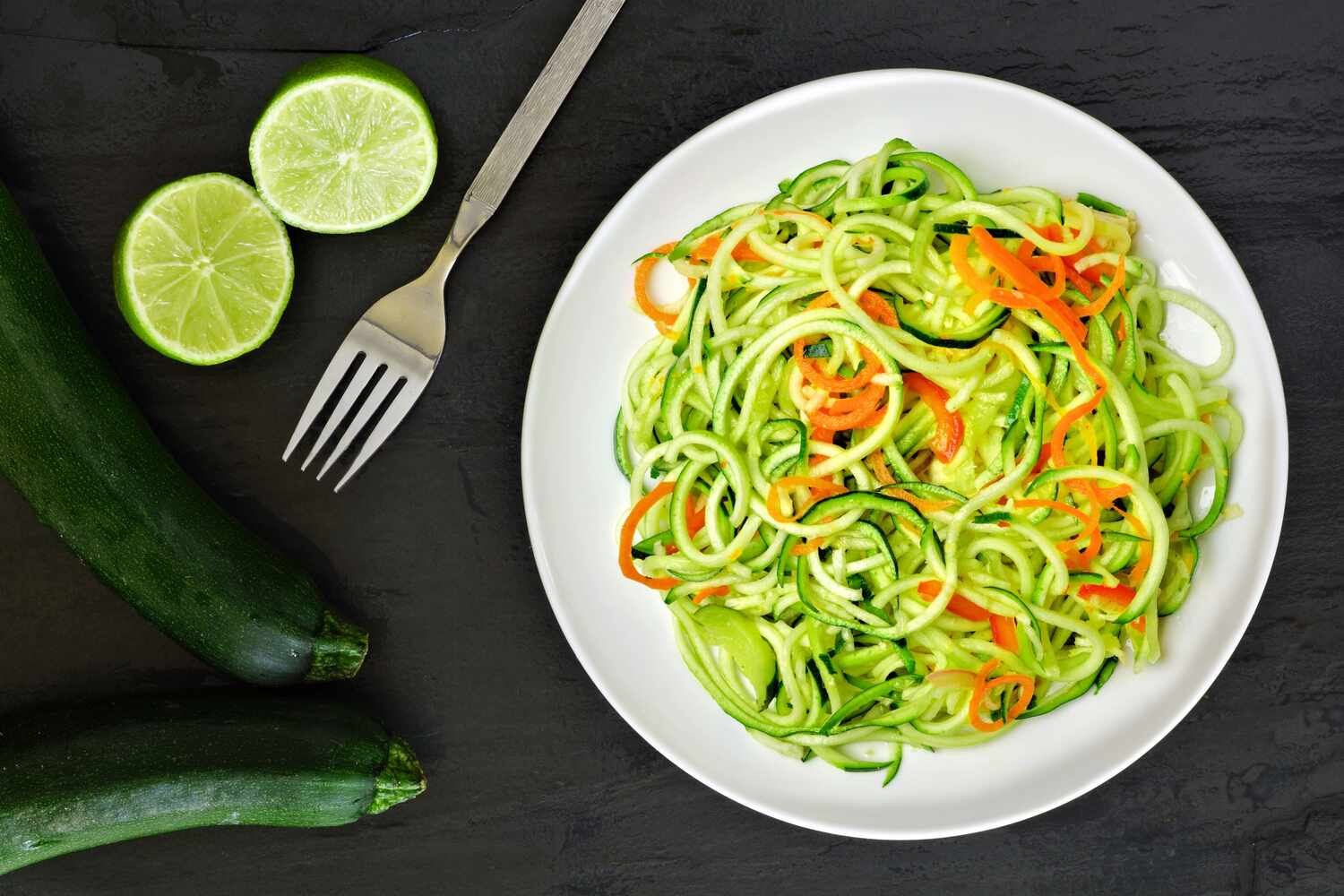
When it comes to purchasing healthy alternatives to refined flour noodles for kids, there are numerous options available in market, including-
- Whole grain (wheat, rice) (3)
- Millet-based (ragi, barley, quinoa, oats)
- Gluten-free (buckwheat, potato) (4)
- Bean-based (chickpea, red lentil) (5)
- Those enhanced with fiber, iron, and other nutrients
These healthy noodles are gaining popularity among health-conscious parents. Nutritious noodles can be made with low-carb ingredients such as-
- zucchini
- spaghetti squash
- butternut squash
- sweet potatoes
- yam
Mixing spiralized veggie noodles into a normal noodle bowl can increase the nutritional value, making it healthier.
Remember, eating noodles frequently can be bad for a toddler’s health in the long run. Diets high in ultra-processed foods are nutritionally unbalanced and severely lacking in other essential nutrients (6). To create a balanced meal for your toddler, add lean proteins and vegetables, and limit the noodle serving size. Offer noodles as a yummy treat with a controlled portion to your toddler.
FAQ’s
1. Is it ok For a Toddler to Have Noodles Once a Week?
Yes, a toddler can have a healthful noodle bowl once a week. The family menu should be planned ahead of time to ensure that the toddler’s nutritional needs are met.
2. Do Noodles Cause Gas in Toddlers?
If toddlers are fed nutrient-deficient noodles regularly without balancing other nutritional components, mainly dietary fiber, they may experience a few gastric issues. However, the occasional pleasure of a healthy soupy noodle can help them fulfill their RDAs without causing any gas.
3. Do Noodles Have MSG?
Yes, many instant noodles often contain MSG, which can be problematic in excessive amounts and produce symptoms in those who are sensitive to it.
4. Which Noodles Are Good For Toddlers?
Toddlers benefit from noodles cooked with fewer processed ingredients. The more ingredients on a food label, the lower its nutritional value.
5. Is Noodles Healthy Food or Junk Food?
The frequent consumption of instant noodles may be linked to poor overall diet quality in toddlers. As most noodles provide crab energy but nothing more, classifying them as junk food.
6. Which Noodles Are Healthy For Kids?
Yes, but only if you make them wisely and serve your toddlers occasionally. When made with fresh, healthful ingredients, a noodle bowl can be a good deal. However, serving instant noodles cooked directly from the packet on a regular basis without adding healthy components is harmful to toddlers.
References
- Instant Noodles: Are they Really Good for Health? A Review – [https://www.researchgate.net/publication/318242712_instant_noodles_Are_they_really_good_for_health_A_review]
- A comparison of food and nutrient intake between instant noodle consumers and non-instant noodle consumers in Korean adults – [https://www.ncbi.nlm.nih.gov/pmc/articles/PMC3221830/]
- Whole wheat noodle: Processing, quality improvement, and nutritional and health benefits – [https://onlinelibrary.wiley.com/doi/abs/10.1002/cche.10095]
- Structural, gelatinization, and rheological properties of heat-moisture treated potato starch with added salt and its application in potato starch noodles – [https://www.sciencedirect.com/science/article/abs/pii/S0268005X22003228]
- Technological and nutritional properties of instant noodles enriched with chickpea or lentil flour – [https://www.sciencedirect.com/science/article/pii/S1018364722000143]
- Nutritional profile of ultra-processed foods consumed by children in Rio de Janeiro – [https://pubmed.ncbi.nlm.nih.gov/32901754/]

